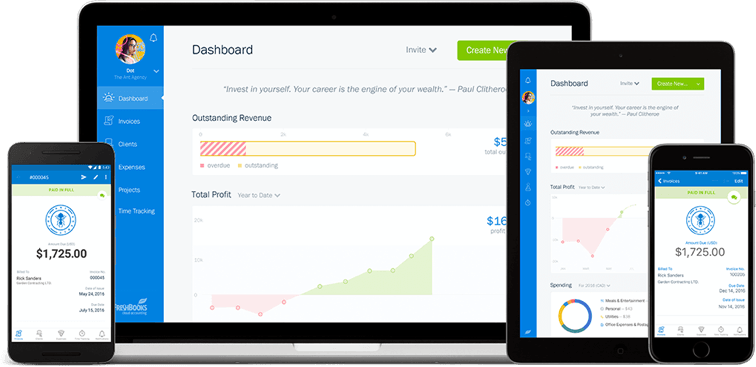Searching for the ideal trucking accounting software to streamline your operations? In this post, we unveil the top 5 best trucking accounting software solutions that will revolutionize how you manage your finances. Say goodbye to manual processes and hello to efficiency with these powerful tools designed specifically for the trucking industry. Ready to take your accounting to the next level?
Understanding Trucking Accounting
Efficient Management
Trucking accounting software simplifies financial management tasks for trucking businesses. It streamlines invoicing, payroll, and expense tracking.
The software offers real-time insights into financial data, enabling quick decision-making for trucking companies. It automates tedious processes, saving time and reducing errors.
Cost Savings
Implementing trucking accounting software can lead to significant cost savings for trucking businesses. It eliminates the need for manual data entry and reduces the risk of errors.
- Cost-effective solutions
- Reduction in operational expenses
Improved Accuracy
Accuracy is crucial in trucking accounting to ensure compliance with regulations and efficient financial management. The software’s automated calculations minimize human error.
Choosing the Right Software
Key Features
When selecting accounting software for your trucking business, look for user-friendly interfaces and robust reporting capabilities. Ensure the software integrates with other tools you use daily.
Customization Options
Opt for software that allows customization to meet the unique needs of your trucking company. Tailoring features like invoicing formats and expense categorization can streamline operations.
Scalability
Consider the growth potential of your business when picking software. Choose a platform that can accommodate your expanding operations without significant disruptions or data migration issues.
Pricing Structures
Evaluate different software pricing models to find one that aligns with your budget. Some options offer monthly subscriptions, while others may require upfront payments or additional fees for specific functionalities.
User Support
Prioritize software providers that offer excellent customer support through various channels like phone, email, or live chat. Quick and efficient assistance can minimize downtime and keep your operations running smoothly.

Top 5 Trucking Accounting Tools
Features to Consider
When selecting top trucking accounting software, it’s crucial to assess various features. Look for tools that offer user-friendly interfaces and customizable reports. Ensure the software integrates with other systems, simplifying data entry and financial tracking.
Pricing Options
Evaluate the cost-effectiveness of different trucking accounting software programs. Some tools offer free trials or basic versions, while others provide premium features at a higher price point. Consider your budget and the value proposition each solution offers.
Integration Capabilities
Seamless integration with existing systems is key for efficient trucking company accounting software. Choose a tool that easily syncs with your payroll, inventory management, and billing systems. This ensures smooth operations and accurate financial data.
Customer Support
Reliable customer support is essential when using owner operator trucking accounting software. Opt for providers offering 24/7 assistance through multiple channels like phone, email, or live chat. Quick resolution of issues can prevent disruptions in your accounting processes.
Scalability and Customization
Consider the scalability of the standalone trucking company accounting software you choose. As your business grows, the software should adapt to increased transactions and data volume. Look for tools that allow customization to meet your specific accounting needs.
Evaluating Software Features
Key Features
When assessing features of trucking accounting software, it’s crucial to prioritize ease of use, customization options, and reporting capabilities. Look for tools that streamline invoicing, expense tracking, and IFTA reporting.
Pros and Cons
Consider the pros like improved efficiency, accurate financial records, and simplified tax compliance. On the flip side, potential cons may include high costs, steep learning curves, and compatibility issues with existing systems.
Reading Reviews
Before making a decision, take the time to read user reviews and ratings. These insights can provide valuable information about real-world experiences with the software. Look out for comments on customer support, updates frequency, and overall satisfaction.
Implementing Accounting Solutions
Customizing Software Features
When implementing accounting software solutions, customization is key to tailor the tool to your business needs. Look for accounting tools that offer flexibility in adjusting settings and reports.
Consider specialized accounting software for trucking companies that include features like mileage tracking, fuel expenses, and driver payroll management. These accounting software options are designed to streamline processes specific to the trucking industry.
Integrating Accounting with Management Systems
Integrating accounting software with other management systems is crucial for seamless operations. Ensure the affordable accounting services features you choose can sync with your existing order management or CRM software.
Look for external accounting software that offers easy integration capabilities with popular business tools like QuickBooks or Xero. This integration simplifies data transfer and ensures accurate financial reporting.
Training and Support for Efficient Implementation
Opt for good accounting software that provides comprehensive training resources and ongoing support. Proper training ensures your team can effectively utilize the generic accounting software, maximizing its benefits.
Choose a vendor known for excellent customer service to address any issues promptly. Reliable support is essential for a smooth implementation process and long-term success.
Final Remarks
You’ve gained insights into trucking accounting, learned how to select the right software, discovered the top tools available, evaluated essential features, and explored implementation strategies. By understanding these aspects, you can streamline your accounting processes, boost efficiency, and enhance overall business performance. Now it’s time to take action. Choose a software solution that aligns with your specific needs, implement it effectively, and watch as your trucking business flourishes with improved financial management. Stay proactive in updating your accounting practices to stay ahead in the competitive trucking industry.

Frequently Asked Questions
What is the importance of trucking accounting software?
Trucking accounting software streamlines financial tasks, tracks expenses, manages invoices, and ensures compliance with tax regulations. It helps trucking businesses maintain accurate records, improve efficiency, and make informed financial decisions.
How do I choose the right trucking accounting software?
Consider factors like industry-specific features, scalability, user-friendliness, integrations with other tools, customer support, and pricing. Evaluate if the software meets your business needs, enhances productivity, and provides reliable financial insights.
Which are the top 5 trucking accounting tools recommended for businesses?
The top 5 trucking accounting tools include Xero, QuickBooks Online, TruckingOffice, Axon Software, and KeepTruckin. These tools offer industry-specific features, robust financial capabilities, ease of use, and support services tailored for trucking companies.
What features should I look for when evaluating trucking accounting software?
Key features to consider include mileage tracking, fuel management, IFTA reporting, load tracking, invoicing capabilities, expense management, payroll integration, compliance tools for DOT regulations, and real-time financial reporting to monitor business performance effectively.
How can I implement trucking accounting solutions successfully in my business?
To implement trucking accounting solutions effectively, start by setting clear goals, training your team on using the software efficiently, customizing the software to fit your business processes, regularly updating data for accuracy, and seeking assistance from customer support when needed.



0 comments